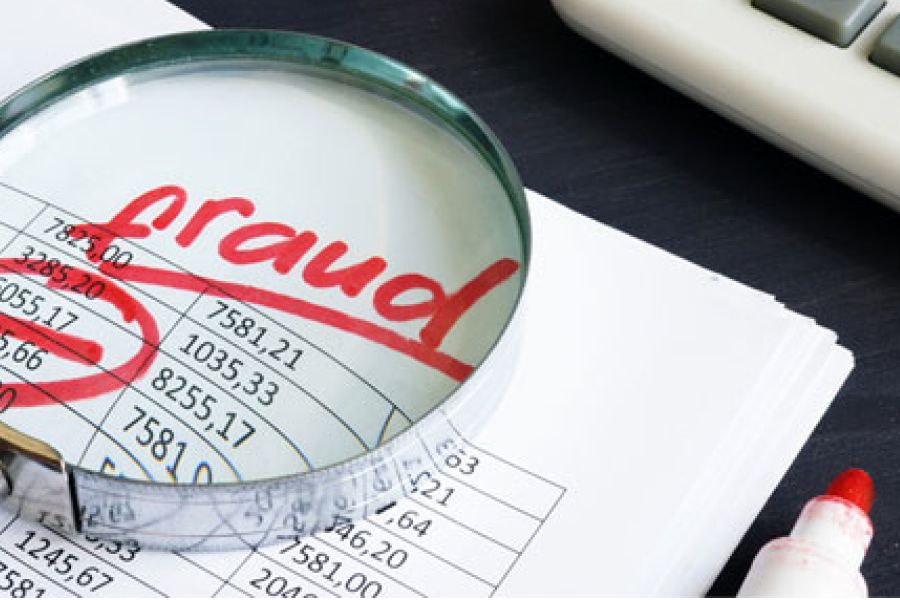Not all shell companies are dishonest. Despite their often-sinister reputation, these paper-only companies may be used legitimately to hold another business’s assets. Or they may be the “empty container” left after a company downsizes or is acquired. That said, some fraud perpetrators use shell companies to embezzle funds, evade taxes, dodge debts and commit other illegal acts. For many businesses, the biggest threat posed by illegitimate shell companies is that unscrupulous employees will use them to perpetrate billing fraud. Here’s how to spot a shell scheme in your midst. Under cover Employee-perpetrated shell company schemes take one of two forms. In the first, an employee sets up a shell company to send out — and collect on — fictitious bills. Perpetrators don’t have to send the bills for...

The COVID-19 pandemic has put enormous pressure on medical practices and healthcare workers. The last thing they need right now is to worry about financial losses and other negative repercussions of occupational fraud. So that physicians and their employees can focus on patient care, they should take a little time now to ensure strong internal controls are in place. Elements of embezzlement According to the Association of Certified Fraud Examiners, embezzlement is the most common form of occupational fraud in medical practices. For example, crooked employees might: Steal receipts or cash on hand, Alter or forge checks, Submit fictitious invoices, Pay personal expenses with practice funds, or Cheat on their expense reimbursement requests. Unfortunately, the complexity of medical practice paperwork discourages many physicians from involvement in the administrative...
Management consulting company McKinsey reports that synthetic identity theft is growing fast. In fact, it's the fastest growing financial crime in the United States. And a LexisNexis Risk Solutions study has found that 20% of ID theft losses by banks can be attributed to synthetic versions of the scheme. If you’re unfamiliar with synthetic ID theft, you should know that it’s not — as its name might imply — a weaker, less “real” form of fraud. In fact, it tends to be much harder to prevent and detect. That’s because all a perpetrator needs to create an identity for criminal purposes is a Social Security number (SSN). Frankenstein monsters Traditionally, identity theft occurs when a thief gets hold of someone’s personal information and uses it to assume his...
Forensic accountants have many tools to help them find evidence of hidden assets or fraud. But one of the most effective, particularly in divorce matters or legal disputes with former business partners, is using lifestyle analysis to find hidden income and assets. This method involves developing a financial profile of a subject and then examining mismatches between the person’s known resources and lifestyle. Financial profiling Forensic accountants develop a financial profile of a subject by examining: Bank deposits. The expert reconstructs the subject’s income by analyzing bank deposits, canceled checks and currency transactions, as well as accounts for cash payments from undeposited receipts and non-income cash sources, such as gifts and insurance proceeds. Expenditures. Here, the expert analyzes the subject’s personal income sources and uses of cash during a...
Maybe the numbers didn’t add up during your company’s recent inventory count. You know that most inventory discrepancies are the result of honest mistakes, such as when employees return items to the wrong shelves or customer returns are flubbed. It’s even possible that you’ve made a mistake and need to perform a recount. But if you suspect something more sinister — such as employee theft — don’t hesitate to call in reinforcements. A forensic accountant can assist in getting the goods on inventory theft. Where the clues are When fraud experts can’t find “innocent” explanations for missing inventory, they look at the business’s culture and environment. Poor controls over purchasing, receiving and cash disbursement puts companies at higher risk of employee theft. And if one person performs...
Business value is a function of risk and return. This is why, when appraising companies, valuation experts are always factoring fraud risk into a business valuation. Although valuations typically aren’t designed to unearth dishonest behavior, experts may expand the scope of their engagement if they spot something suspicious — particularly if they believe financial statements are inaccurate. Possible risks A valuator’s fraud risk assessment starts with the subject company’s internal controls. When interviewing management, experts ask about the business’s policies and procedures to protect assets, improve operating efficiency and ensure reliable financial statements. For example, they look for risk-reducing controls such as: Physical and digital controls (for example, locks, passwords, cameras and security systems), Fraud training programs, Job descriptions that call for segregation of duties and job...
Reports started trickling into state agricultural agencies in July: Consumers were worried about strange seed packets they had received in the mail. The unsolicited goods weren’t labeled and appeared to be sent from China. In a year already fraught with anxiety and paranoia, the story quickly made headlines. Perhaps this was the first you’d heard of a scam known as “brushing,” in which some third-party e-commerce sellers set up fake buyer accounts and ship unordered goods (in this case, seeds) to “customers.” Why would they do this? Read on. A growing fraud Brushing scammers set up fake accounts with Amazon, eBay and other online platforms so that they can order their own merchandise, ship it to a real address and then post glowing reviews that bolster their ratings....
When business owners suspect that an employee is stealing assets or manipulating financial results, it’s time to call a fraud expert to investigate. Although the complexity of the incident will determine the investigation’s scope, there are 3 steps experts follow to build a fraud case that can stand up in court. Conducting interviews Fraud interviewers know how to spot warning signs, detect deception and pin down suspicions when talking with suspects and their coworkers. But they usually start with management interviews, by asking owners, executives and audit committee members what they know about: Possible fraud ploys, The company’s fraud risks, and Internal controls that have been implemented to mitigate specific fraud risks or to generally help prevent, deter and detect fraud. An expert may interview not...
Fraud tends to flourish during periods of prosperity. The reason is simple: When companies experience fast-growing revenues and rising net profits, they may lack a strong incentive to divert resources to preventing and detecting fraud. Fraud schemes can go undetected for months, even years. Furthermore, the sheer volume of legitimate transactions during thriving economic times makes it harder to detect fraudulent transactions. Normally, an economic slowdown correlates with increased fraud detection. But the COVID-19 pandemic has upended normal expectations. Companies may need to find new methods of unmasking fraud. Fraud continues … and even grows With millions of employees working from their homes, there are fewer people in the office to notice and report irregularities. And many managers are too distracted with crisis-related activities to perform the proper...
With a median loss of $954,000, financial statement fraud is the costliest type of white-collar crime, according to the Association of Certified Fraud Examiners. Fortunately, auditors and forensic accountants may be able to detect inflated income and other financial manipulation by testing journal entries. Unearthing suspicious entries Financial statement frauds come in many forms. For example, out-of-period revenue can be recorded to inflate revenue. Repair costs can be improperly capitalized as fixed assets to boost earnings. Accounts payable can be understated by recording post-closing journal entries to income. Or expenses can be reclassified to reserves and intercompany accounts, thereby increasing earnings. To detect these types of scams, auditors: Learn about the company’s financial reporting process and controls over journal entries, Identify and select journal entries and other adjustments...











